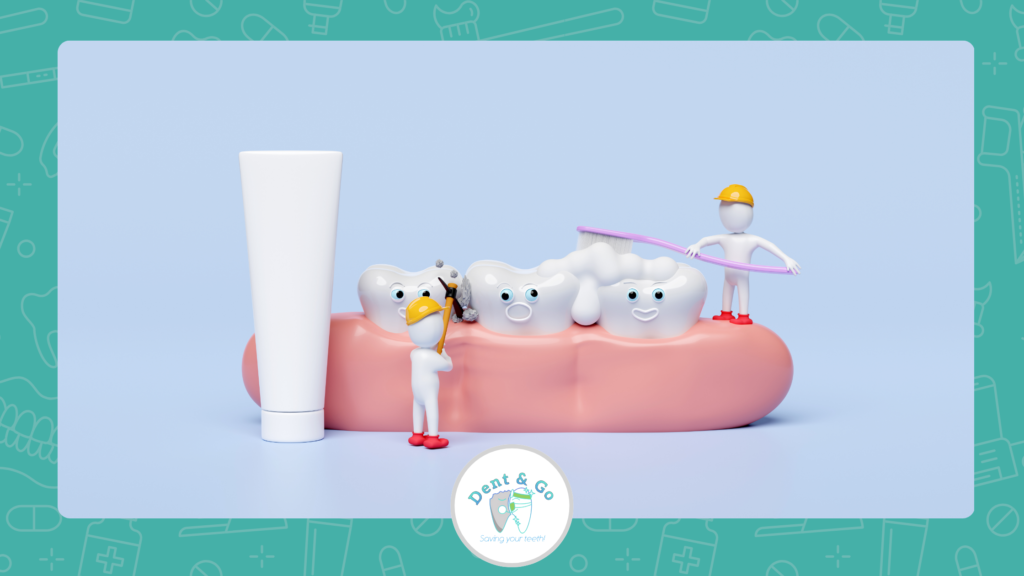Dental plaque is a sticky, colourless or pale yellow film that constantly forms on your teeth. It develops when saliva, food, and fluids combine, creating a medium for bacteria to thrive. Plaque is particularly problematic because it contains bacteria that produce acids, which can attack tooth enamel and lead to cavities, gum disease, and even tooth loss if not properly managed.
What Is Dental Plaque?
Plaque forms on the surfaces of your teeth and along the gumline. It is composed of a complex microbial community embedded in a matrix of polymers derived from both the bacteria and the host. While the presence of some plaque is natural and inevitable, its accumulation is what poses risks to oral health. When plaque is not removed regularly, it can harden into tartar (or calculus), which is more difficult to remove and can only be professionally cleaned by a dentist or dental hygienist.
How Does Plaque Affect Oral Health?
The acids produced by the bacteria in plaque can lead to various dental issues. Over time, these acids erode tooth enamel, causing cavities. Plaque buildup along the gumline can also irritate the gums, leading to gingivitis, the earliest stage of gum disease. If left untreated, gingivitis can progress to periodontitis, a more severe form of gum disease that can result in tooth loss and damage to the bone supporting the teeth.
Moreover, plaque can contribute to bad breath (halitosis) and discolouration of the teeth. Therefore, maintaining good oral hygiene is essential to manage plaque and protect overall oral health.
How Do You Treat Plaque on Teeth?
Although you cannot completely stop plaque from forming, there are several effective methods to manage and remove it. Here are some key strategies:
1. Floss Daily: Flossing is crucial for removing plaque and food particles from between your teeth, areas that your toothbrush cannot reach. Daily flossing or the use of an interdental cleaning device helps prevent plaque accumulation and reduces the risk of cavities and gum disease.
2. Use Fluoride Toothpaste: Fluoride toothpaste helps to strengthen tooth enamel, making it more resistant to decay. It also assists in the remineralisation process, helping to repair early stages of tooth decay caused by plaque.
3. Brush Twice a Day: Brushing your teeth at least twice a day for two minutes is essential for eliminating most plaque. Ensure you brush all surfaces of your teeth, including the outer, inner, and chewing surfaces. Using a soft-bristled toothbrush and proper technique can maximise the effectiveness of brushing.
4. Use an Antibacterial Mouthwash: An antibacterial mouthwash can help control plaque buildup by killing bacteria and reducing their ability to produce harmful acids. This is particularly beneficial for reaching areas in the mouth that are difficult to clean thoroughly with brushing and flossing alone.
5. Avoid Sugary Foods and Drinks: Sugary foods and drinks are a major contributor to plaque formation, as the bacteria in plaque feed on sugars and produce acids that can damage teeth. Limiting your intake of these items helps reduce the risk of tooth decay and plaque-related complications.
According to the American Dental Association (ADA), chewing sugar-free gum and rinsing your mouth with water after meals can also help manage plaque. Sugar-free gum stimulates saliva production, which helps wash away food particles and neutralise acids. Rinsing with water aids in clearing away food debris and reducing the potential for plaque buildup.
Managing dental plaque is a critical part of maintaining oral health. By incorporating daily flossing, using fluoride toothpaste, brushing thoroughly, employing antibacterial mouthwash, and limiting sugary foods and drinks, you can effectively control plaque and prevent its associated complications. Additionally, simple practices like chewing sugar-free gum and rinsing your mouth with water can further support oral hygiene. Regular dental check-ups and professional cleanings are also essential to ensure that plaque and tartar do not compromise your oral health.

